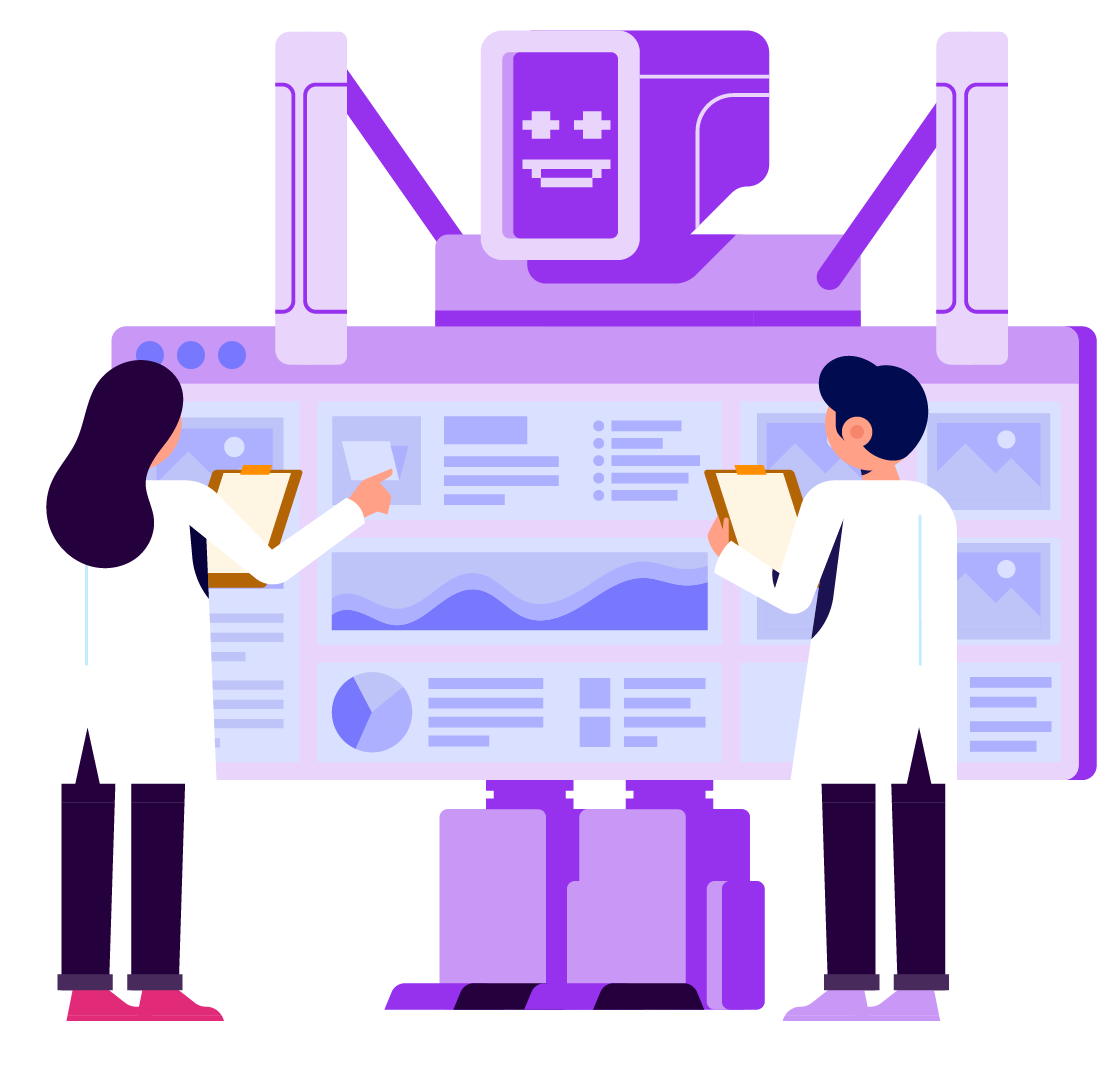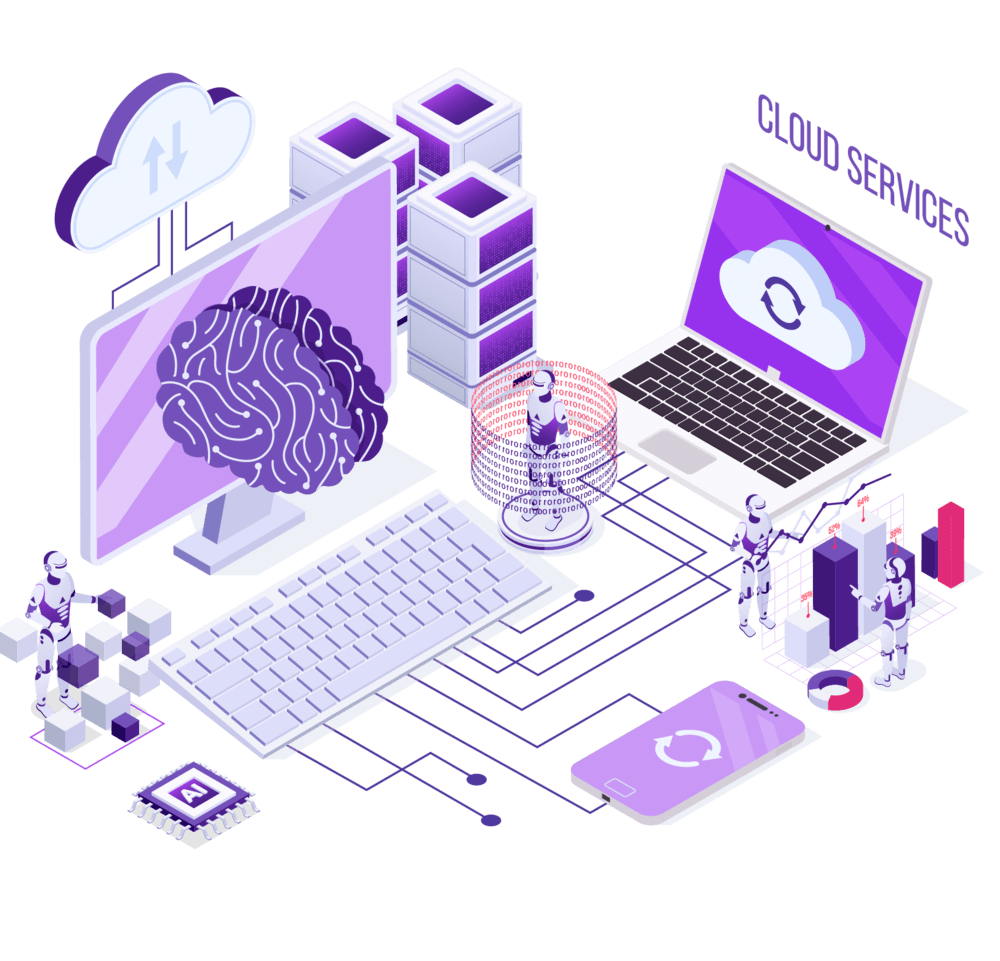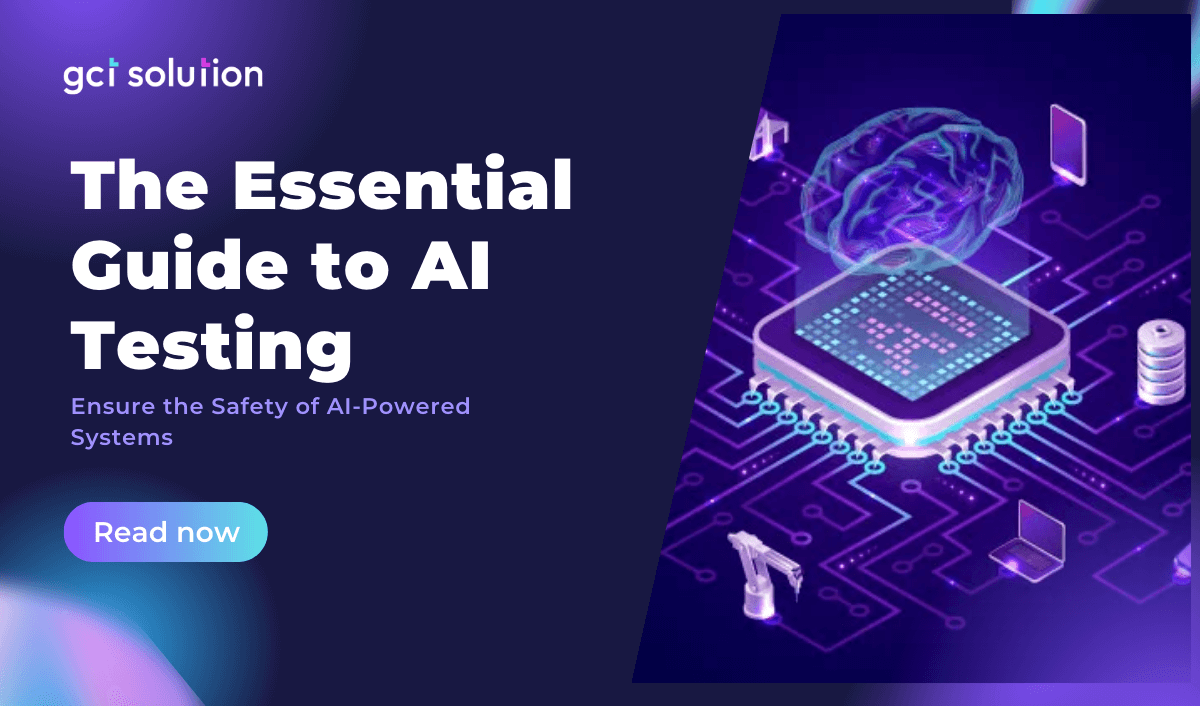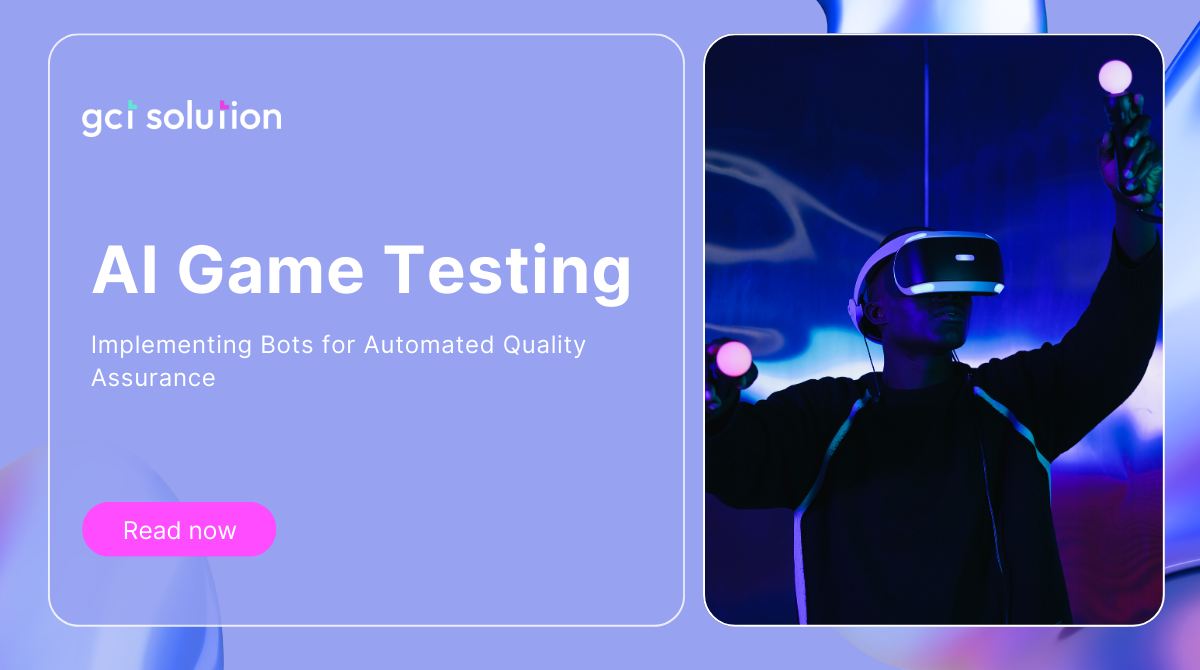The Essential Guide to AI Testing: Ensure the Safety of AI-Powered Systems
AI testing is the process of evaluating the performance, reliability, and safety of AI systems to ensure they meet the desired requirements and function as intended. According to a report by MarketsandMarkets, the global AI testing market is expected to grow from $300 million in 2020 to $1.5 billion by 2025, at a CAGR of 38.1% during the forecast period. This rapid growth underscores the importance of AI testing as organizations strive to deliver reliable and trustworthy AI-powered solutions.
Whether you're a software developer, a quality assurance engineer, or a business leader, understanding the ins and outs of AI testing is crucial for staying ahead in today's technology-driven landscape. In this comprehensive blog, we'll explore the world of AI testing, delving into the latest trends, best practices, and cutting-edge techniques that are shaping the future of this rapidly evolving field.
What is AI Testing?
AI, or Artificial Intelligence, refers to the development of computer systems and software that can perform tasks that would typically require human intelligence, such as learning, problem-solving, and decision-making.
AI testing, then, is the process of verifying and validating the performance and behavior of AI-powered systems to ensure they are functioning as intended. This involves a range of testing techniques and approaches to assess the accuracy, reliability, and safety of the AI system.
Let's consider a real-world example to make this clearer. Imagine an AI-powered chatbot that is designed to provide customer support for a company. The chatbot uses natural language processing and machine learning algorithms to understand user queries and provide relevant, helpful responses.
In this case, AI testing would involve things like:
- Accuracy testing: Checking if the chatbot accurately understands the user's questions and provides appropriate, accurate responses.
- Robustness testing: Evaluating how the chatbot handles unexpected or edge-case scenarios, such as users providing ambiguous or complex queries.
- Fairness and bias testing: Ensuring the chatbot's responses do not exhibit any unfair biases or discrimination based on factors like gender, race, or location.
- Safety testing: Verifying that the chatbot's responses do not contain any harmful or inappropriate content, and that it behaves in a way that is safe for users.
Unlike traditional software testing, which focuses on verifying the correctness of code, AI testing involves assessing the behavior and decision-making processes of AI models. This is because AI systems are often trained on large datasets and can exhibit complex, non-linear, and sometimes unpredictable behaviors. As a result, AI testing requires a unique set of approaches and methodologies to ensure the reliability and trustworthiness of these systems.
*Disclaimer: While AI testing can also refer to the evaluation of functionality, performance, and reliability of a system, this article specifically focuses on the concept of testing for AI systems themselves.
You may also like this article:
Artificial Intelligence in Business: How Will It Revolutionize Your Business?
Types of AI Testing
1. Functional Testing:
This type of testing focuses on verifying that the AI system performs the intended tasks correctly. It involves testing the system's ability to understand and respond to various inputs, as well as its ability to generate accurate outputs.
To get a clearer view, imagine you're developing an AI-powered medical diagnosis system, for example. Functional testing would consist of checking if the system can accurately identify different diseases based on a patient's symptoms, test results, and medical history.
2. Performance Testing:
Performance testing evaluates the AI system's ability to handle large volumes of data, process information quickly, and maintain consistent performance under different workloads. This includes testing the system's scalability, response times, and resource utilization.
For instance, consider an AI-powered recommendation engine for an e-commerce website. Performance testing would involve simulating high user traffic and measuring how quickly the system can process user data and provide personalized product recommendations.
You may also like this article:
Mobile App Performance Testing Steps: A Comprehensive Guideline
3. Robustness Testing:
Robustness testing examines the AI system's ability to handle unexpected or adversarial inputs without failing or producing erroneous outputs. This type of testing helps identify potential vulnerabilities and ensures the system can operate reliably in real-world conditions.
Suppose you have an AI-powered chatbot designed to provide customer support. Robustness testing would involve sending the chatbot unusual or unexpected messages, such as misspellings, slang, or irrelevant information, to ensure it can handle these cases without crashing or providing nonsensical responses.
4. Fairness and Bias Testing:
AI systems can sometimes exhibit biases, either inherent in the training data or introduced during the model development process. Fairness and bias testing aims to identify and mitigate these biases to ensure the AI system treats all users and stakeholders equitably.
Imagine you're developing an AI-powered resume screening system. Fairness and bias testing would involve evaluating the system to ensure it doesn't unfairly favor or discriminate against candidates based on factors like gender, race, or age.
5. Explainability and Interpretability Testing:
As AI systems become more complex, it becomes increasingly important to understand how they arrive at their decisions. Explainability and interpretability testing focuses on evaluating the transparency and interpretability of the AI system's decision-making process.
For example, consider an AI-powered credit scoring system. Explainability and interpretability testing would focus on ensuring the system can provide clear and understandable explanations for its credit decisions, so that users can understand the reasoning behind the system's recommendations.
6. Safety and Security Testing:
This type of testing assesses the AI system's ability to operate safely and securely, without causing harm to users or the environment. It includes testing for potential vulnerabilities, such as adversarial attacks, and ensuring the system's compliance with relevant safety and security standards.
Suppose you're creating an AI-powered self-driving car system. Safety and security testing would involve evaluating the system's ability to detect and respond to potentially dangerous situations, such as pedestrians or other vehicles, without causing harm.

Challenges of AI Testing
1. Data Quality and Bias:
AI systems are heavily dependent on the quality and representativeness of the training data. Ensuring the data is free from biases and accurately reflects the real-world scenarios the system will encounter is a significant challenge.
2. Complexity and Unpredictability:
AI systems can exhibit complex, non-linear, and sometimes unpredictable behaviors, making it challenging to anticipate and test for all possible scenarios.
3. Lack of Interpretability:
Many AI models, particularly deep learning models, are often referred to as "black boxes" due to the difficulty in understanding their internal decision-making processes. This lack of interpretability can make it challenging to identify the root causes of issues and ensure the system's reliability.
4. Scalability and Automation:
As AI systems become more widespread and complex, the need for scalable and automated testing approaches becomes increasingly important. Developing efficient and effective testing strategies that can keep pace with the rapid evolution of AI technologies is a significant challenge.
5. Regulatory and Ethical Considerations:
The deployment of AI systems in sensitive domains, such as healthcare, finance, and criminal justice, raises important ethical and regulatory concerns. Ensuring AI systems comply with relevant laws, regulations, and ethical principles is a critical challenge.
Why is AI Testing Important?
1. Ensuring Reliability and Safety:
Thorough testing of AI systems is crucial to ensure they operate reliably and safely, without causing harm to users or the environment. This is particularly important in high-stakes domains, such as healthcare, transportation, and finance, where the consequences of AI failures can be severe.
Imagine an AI-powered self-driving car system. If this system is not thoroughly tested, it could make mistakes that could lead to accidents and put people's lives at risk. But if the system is rigorously tested, it can be much more reliable and safe, helping to prevent accidents and protect the people inside the car and on the road.
2. Mitigating Bias and Discrimination:
AI systems can perpetuate and amplify societal biases if not properly tested and validated. AI testing helps identify and mitigate these biases, ensuring the system treats all users and stakeholders equitably.
Consider an AI-powered hiring system that is used to screen job applicants. If this system is not tested for bias, it could end up discriminating against certain groups of people, such as women or minorities, without the company even realizing it. Testing the system for bias can help ensure that it makes fair and unbiased decisions, giving all applicants an equal chance.
3. Improving Transparency and Accountability:
By testing the explainability and interpretability of AI systems, developers can enhance the transparency of the decision-making process, making it easier to understand and hold the system accountable.
Imagine an AI-powered system that is used to make important decisions, like approving loans or determining prison sentences. If this system is a "black box" and its decision-making process is not transparent, it can be very difficult to hold the system accountable. But if the system is tested for explainability and interpretability, it becomes much easier to understand how it is making decisions, which can improve trust and accountability.
4. Maintaining User Trust:
As AI systems become more prevalent in our daily lives, maintaining user trust is essential. Rigorous testing and validation of these systems can help build confidence and trust in the technology.
Take an AI-powered virtual assistant that is designed to help people with various tasks for example. If this assistant makes frequent mistakes or behaves in ways that users find concerning, it can quickly erode user trust in the technology. But if the assistant is thoroughly tested and proven to be reliable and trustworthy, users are much more likely to continue using it and to recommend it to others.
5. Compliance with Regulations:
In many industries, there are growing regulatory requirements and guidelines for the development and deployment of AI systems. Comprehensive testing is necessary to ensure compliance with these regulations and guidelines.
Imagine an AI-powered medical diagnosis system that is used in a hospital. In many countries, there are strict regulations and guidelines for the development and use of such systems to ensure patient safety and privacy. Thorough testing of the system is necessary to make sure it complies with all relevant regulations, which can help the hospital avoid legal issues and maintain the trust of patients.

Tools and Techniques for AI Testing
1. Simulation and Emulation:
Simulation and emulation tools allow developers to create virtual environments and scenarios to test AI systems in a controlled and repeatable manner. This approach can be particularly useful for testing the system's performance, robustness, and safety under a wide range of conditions.
2. Adversarial Testing:
Adversarial testing involves deliberately introducing malicious or unexpected inputs to the AI system to assess its ability to handle such situations. This technique can help identify vulnerabilities and improve the system's robustness.
3. Explainable AI (XAI) Techniques:
XAI techniques, such as feature importance analysis and model interpretability methods, can be used to understand the decision-making process of AI systems, enabling more effective testing and validation.
4. Bias and Fairness Evaluation Tools:
Tools like AI Fairness 360 and Aequitas can be used to assess the fairness and bias of AI systems, helping developers identify and mitigate potential biases.
5. Automated Testing Frameworks:
Automated testing frameworks, such as Pytest and Robot Framework, can be adapted to handle the unique requirements of AI testing, enabling more efficient and scalable testing processes.
6. Continuous Integration and Deployment:
Integrating AI testing into a continuous integration and deployment (CI/CD) pipeline can help ensure that changes to the AI system are thoroughly tested and validated before deployment.
7. Monitoring and Feedback Loops:
Implementing monitoring and feedback loops to track the performance and behavior of the AI system in production can provide valuable insights for ongoing testing and improvement.
Ethical Considerations in AI Testing
1. Privacy and Data Protection:
AI testing often involves the use of sensitive or personal data, which raises important privacy and data protection concerns. Developers must ensure that the testing process complies with relevant data privacy regulations and protects the confidentiality of user information.
2. Algorithmic Bias and Fairness:
As mentioned earlier, AI systems can perpetuate and amplify societal biases. Ethical AI testing must prioritize the identification and mitigation of these biases to ensure the system treats all users and stakeholders equitably.
3. Transparency and Accountability:
Ethical AI testing should strive to enhance the transparency and interpretability of the AI system's decision-making process, enabling users and stakeholders to understand and hold the system accountable.
4. Safety and Security:
Ethical AI testing must consider the potential risks and harms the system may cause, both to individual users and to society as a whole. This includes ensuring the system's safety and security, as well as its compliance with relevant safety and security standards.
5. Informed Consent and User Autonomy:
In some cases, AI testing may involve the participation of human subjects. Ethical considerations in such cases include obtaining informed consent and ensuring the autonomy and well-being of the participants.
6. Environmental Impact:
The development and deployment of AI systems can have significant environmental implications, such as increased energy consumption and carbon emissions. Ethical AI testing should consider the environmental impact of the system and explore ways to minimize its ecological footprint.

Final Thought:
In conclusion, AI testing is a critical and rapidly evolving field that will play a crucial role in the successful and responsible development and deployment of AI technologies. By addressing the unique challenges of AI testing and incorporating ethical principles, the future of AI testing will help build trust, ensure safety, and unlock the full potential of these transformative technologies.
If you are seeking a seasoned IT provider, GCT Solution is the ideal choice. With 3 years of expertise, we specialize in Mobile App , Web App, System Development, Blockchain Development and Testing Services. Our 100+ skilled IT consultants and developers can handle projects of any size. Having successfully delivered over 50+ solutions to clients worldwide, we are dedicated to supporting your goals. Reach out to us for a detailed discussion, confident that GCT Solution is poised to meet all your IT needs with tailored, efficient solutions.












